Subscribe now and get the latest podcast releases delivered straight to your inbox.
20 years ago, the only time you would have heard the term “social proof” would have been at a psychology conference or a university economics lecture.
Ask a marketer today if they’re using social proof, and they’ll jump in with a quick “of course.”
The concept of social proof — the phenomenon that our own behavior is impacted by the influence, actions, attitudes, or beliefs of others — has been around for quite some time.
We see social proof examples in the real world all the time:
-
The long line out the door of a restaurant signals that the food is good
-
A celebrity endorsement making us want to buy a product even more
-
An empty bar making us uncomfortable and we assume there’s something wrong with it
In short, social proof digs into the basics of human nature.
We’re social beings and we subsist on the positive benefits of social relationships, and today, the concept of social proof has become a key tool for today’s modern marketer — allowing them to capitalize on the psychological underwiring of consumers.
It’s hard to visit a website in 2019 without seeing social proof of some form: a review, a testimonial, in-line notifications, popup notifications, ratings, case studies, or the sorts.
And as social proof has become more common across the internet, it’s harder than ever for your site to stick out.
It’s important to stay ahead of the curve and identify how social proof has adapted so that you can best convert your visitors.
Here are three ways social proof has changed in 2019, and how you can adapt to the changing environment:
1. Social Proof Is Expected by Buyers
We’re no longer dealing with an environment where people aren’t aware of social proof. In fact, we’ve reached the point where website visitors are looking for social proof on a page as an essential part of the buyer’s journey.
People often feel like they need to see product reviews or insight from previous buyers before feeling comfortable making a purchase themselves. Thankfully, for buyers and marketers, the internet has made this easier than ever.
For instance, let’s consider a customer comparing Intercom’s live chat software with Zendesk’s competing offering.
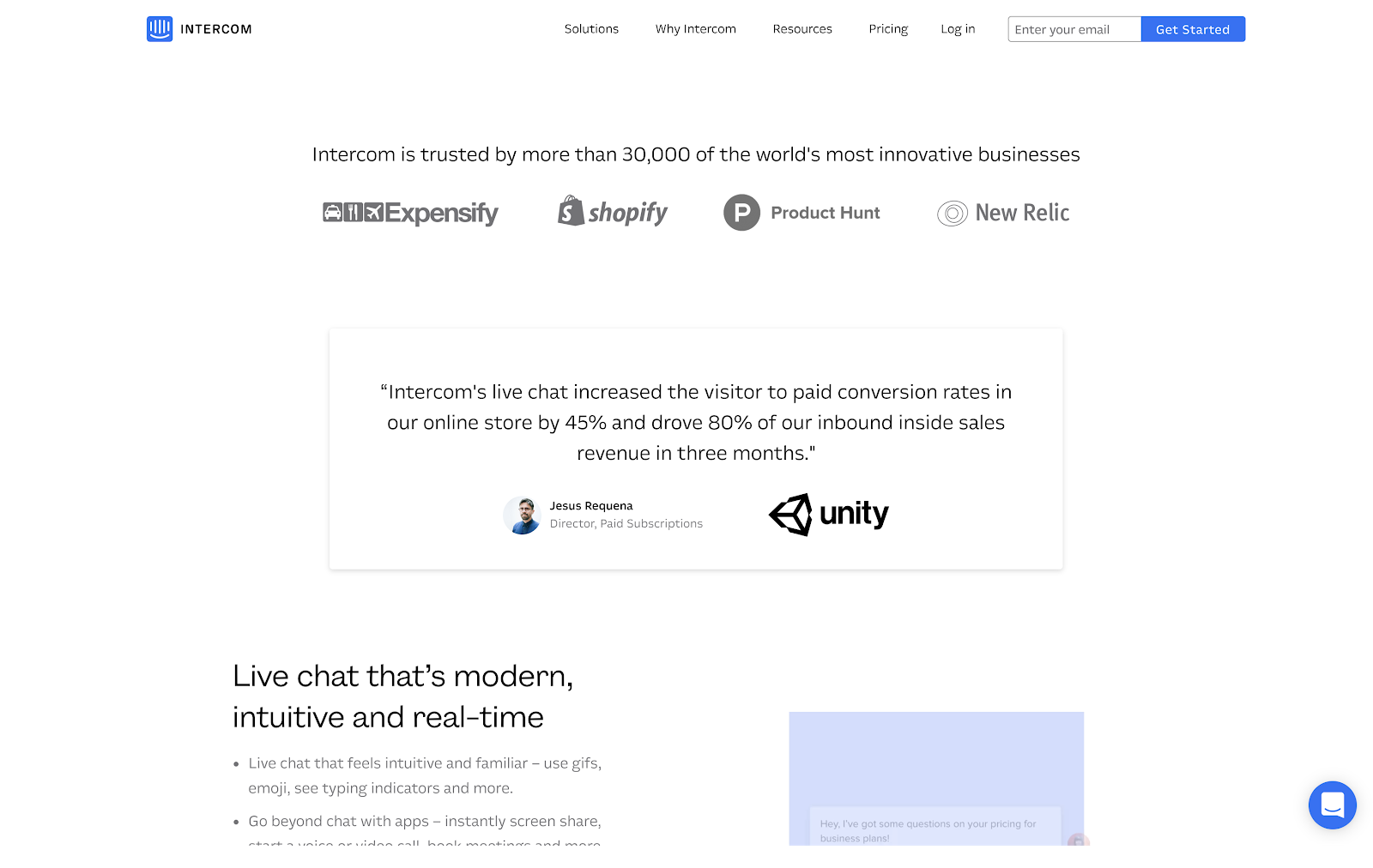
Intercom’s page validates their product claims by introducing customer logos and testimonials.
They indicate they are “trusted by more than 30,000 of the world’s most innovative businesses” — and immediately below that text, they include logos from notable brands such as Expensify, Shopify, Product Hunt, and New Relic.
Following the logo section, Intercom provides a more in-depth point of social proof with a product recommendation testimonial from Jesus Requena, Director of Paid Subscriptions at Unity.
He cites the impact of Intercom in increasing their conversion rate by 45% and driving 80% of sales revenue.
Zendesk, on the other hand, while a well-designed and interesting page, provides an experience that feels slightly bizarre for the consumer of 2019.
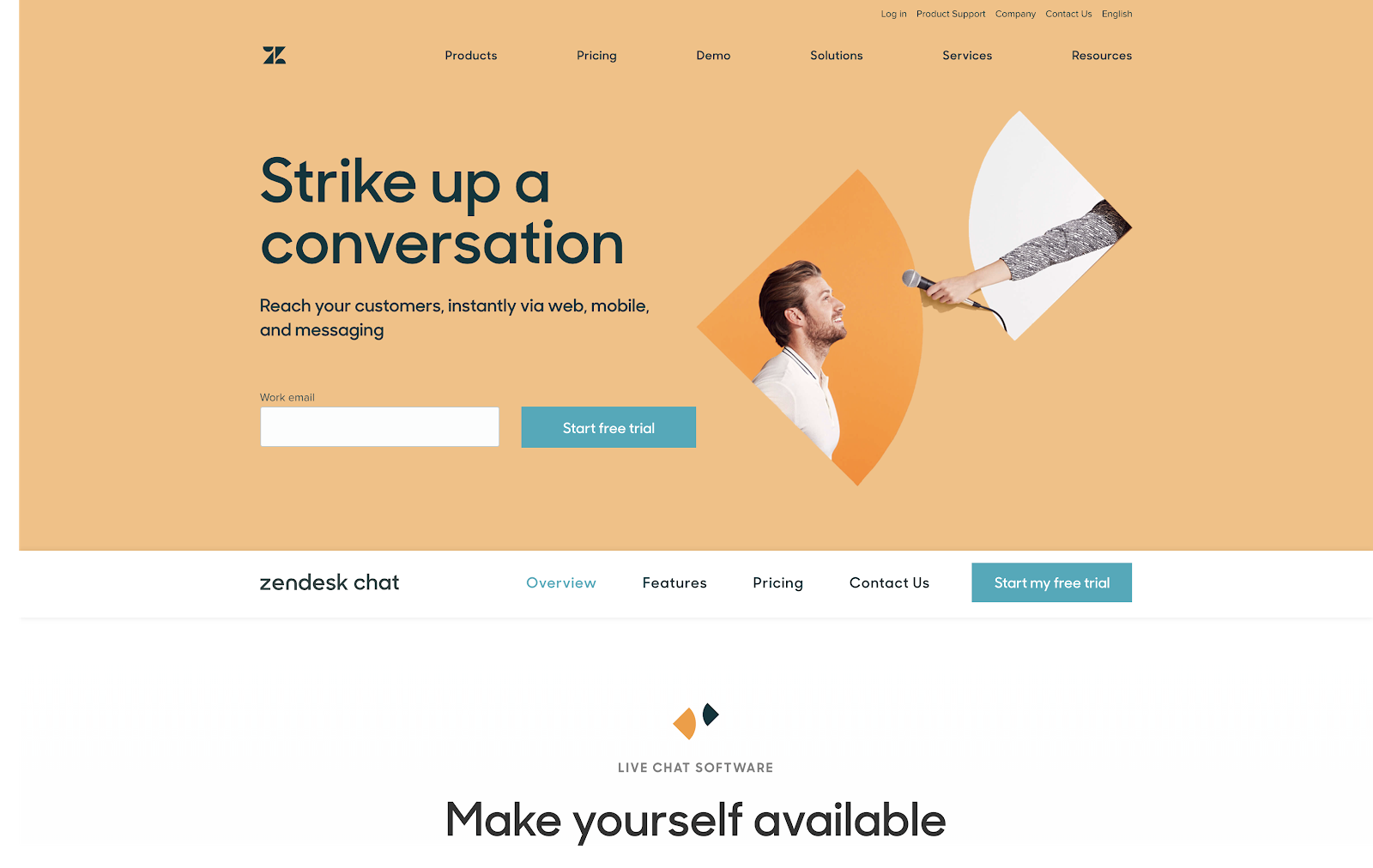
Nowhere on the landing page are there common points of social proof: a reference to customers, case studies, or recent activity.
As a consumer raised in the era of customer centricity, it’s an odd experience to say the least. This is a no-go for a major brand.
Holding both sites equal, a lack of social proof can make Zendesk’s offer look a whole lot less appealing and possibly even less trustworthy.
And the numbers don’t lie.
When you hear stats like 84% of consumers trust online reviews as much as personal recommendations or that testimonials can increase conversions on sales pages by 34%, it’s hard to doubt the effectiveness.
2. Real-time Stats Are More Powerful and Authentic
While testimonials and case studies are great, a real-time overview into website activity is even more powerful.
This is a tactic that huge websites (especially sites in the travel and hospitality spaces) have been using for years.
On Airbnb’s listing page, for example, when you’re about to book, they add a quick stat to the page “17 others are looking at it for these dates” to urge you to take immediate action and not miss out.
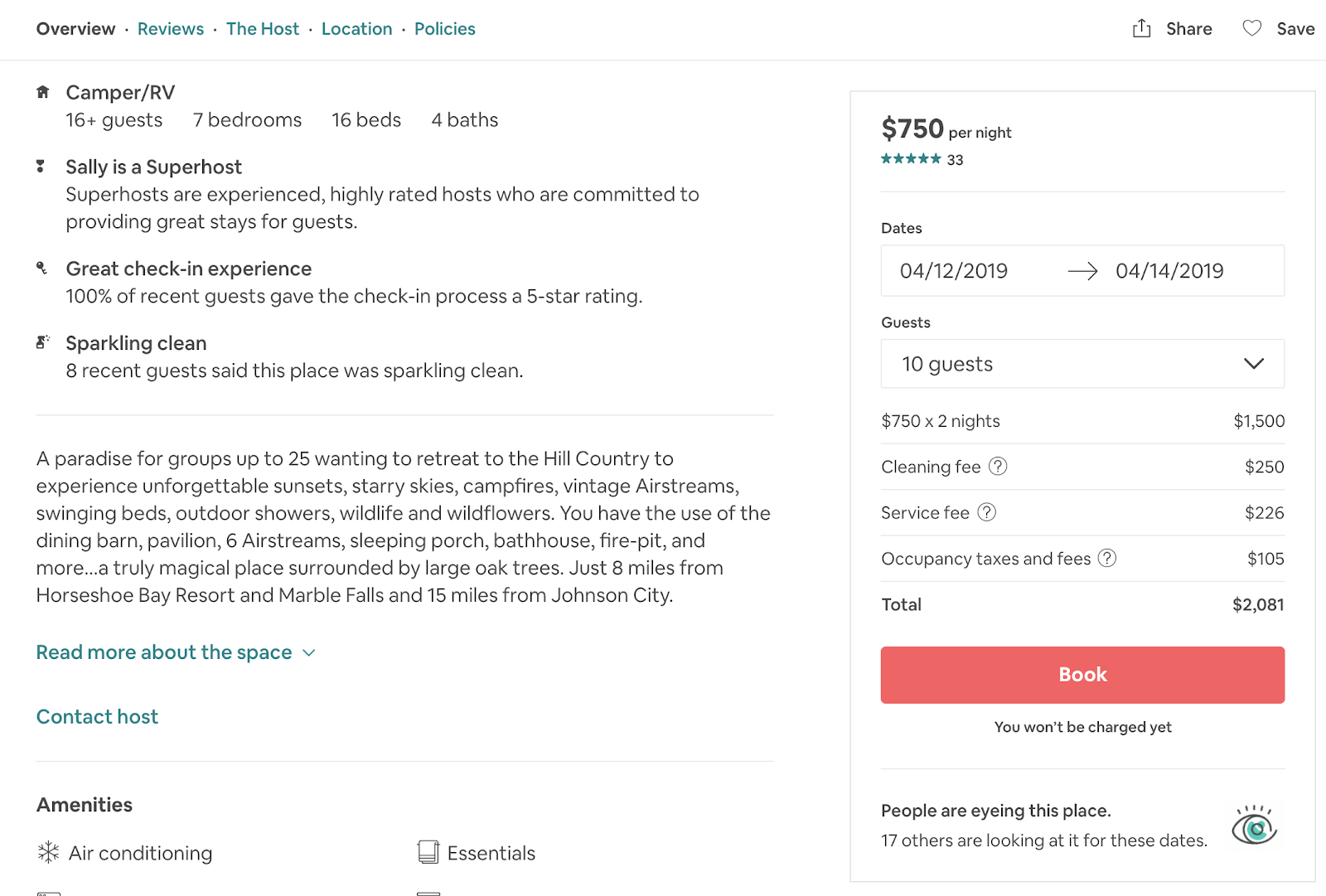
Or on Hotels.com — when you’re searching around a property, they try to encourage action with a popup in the bottom right corner that says “This hotel has been booked 4 times in the last 24 hours.”
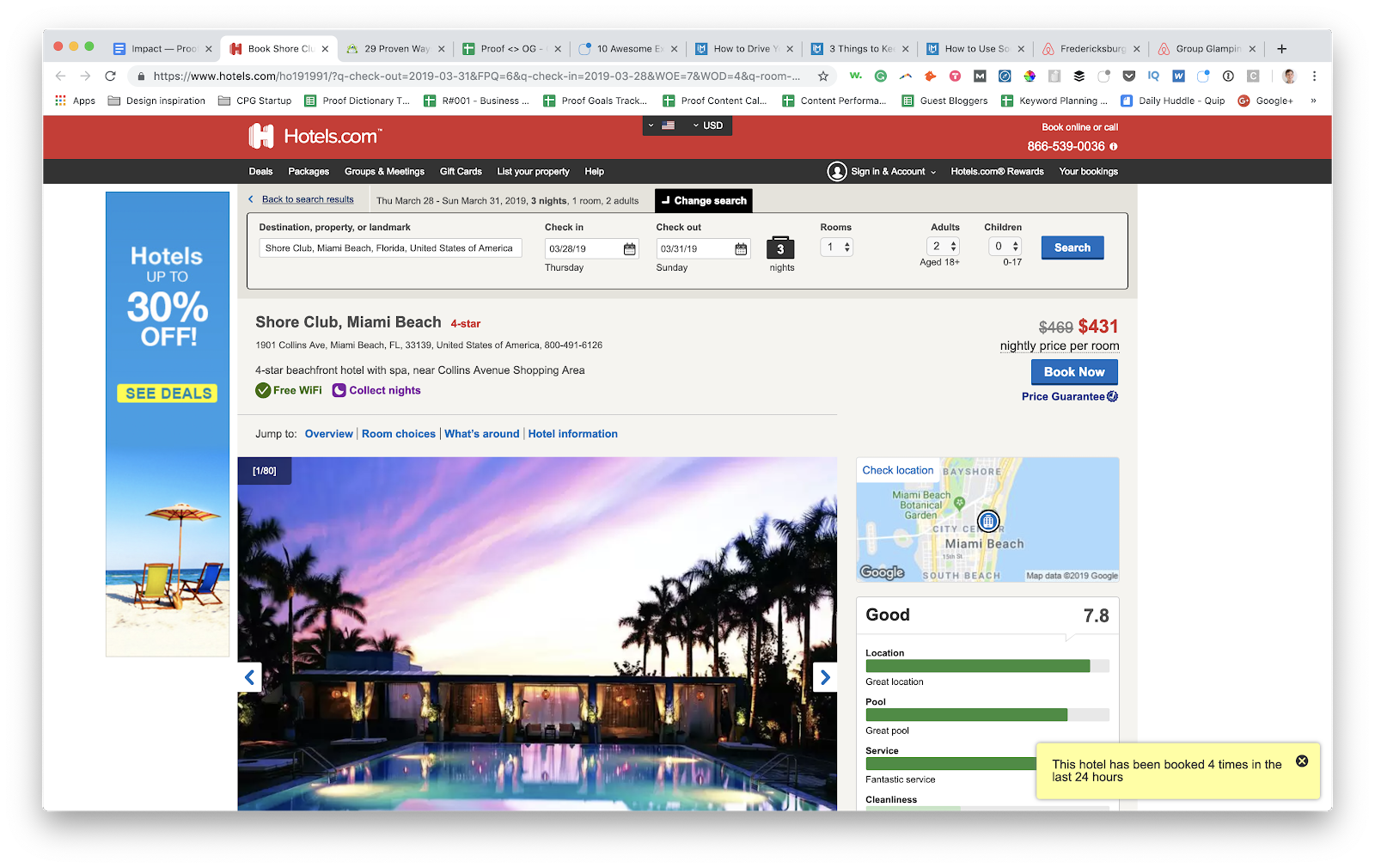
This builds trust and comfort by not only letting you know others are using the site but that they’re booking this specific property.
It used to be that these forms of real-time social proof were reserved for only massive websites with teams of engineers at their disposal.
However, today, any website can use software like Proof’s to quickly add social proof notifications at high-traffic points in the funnel.
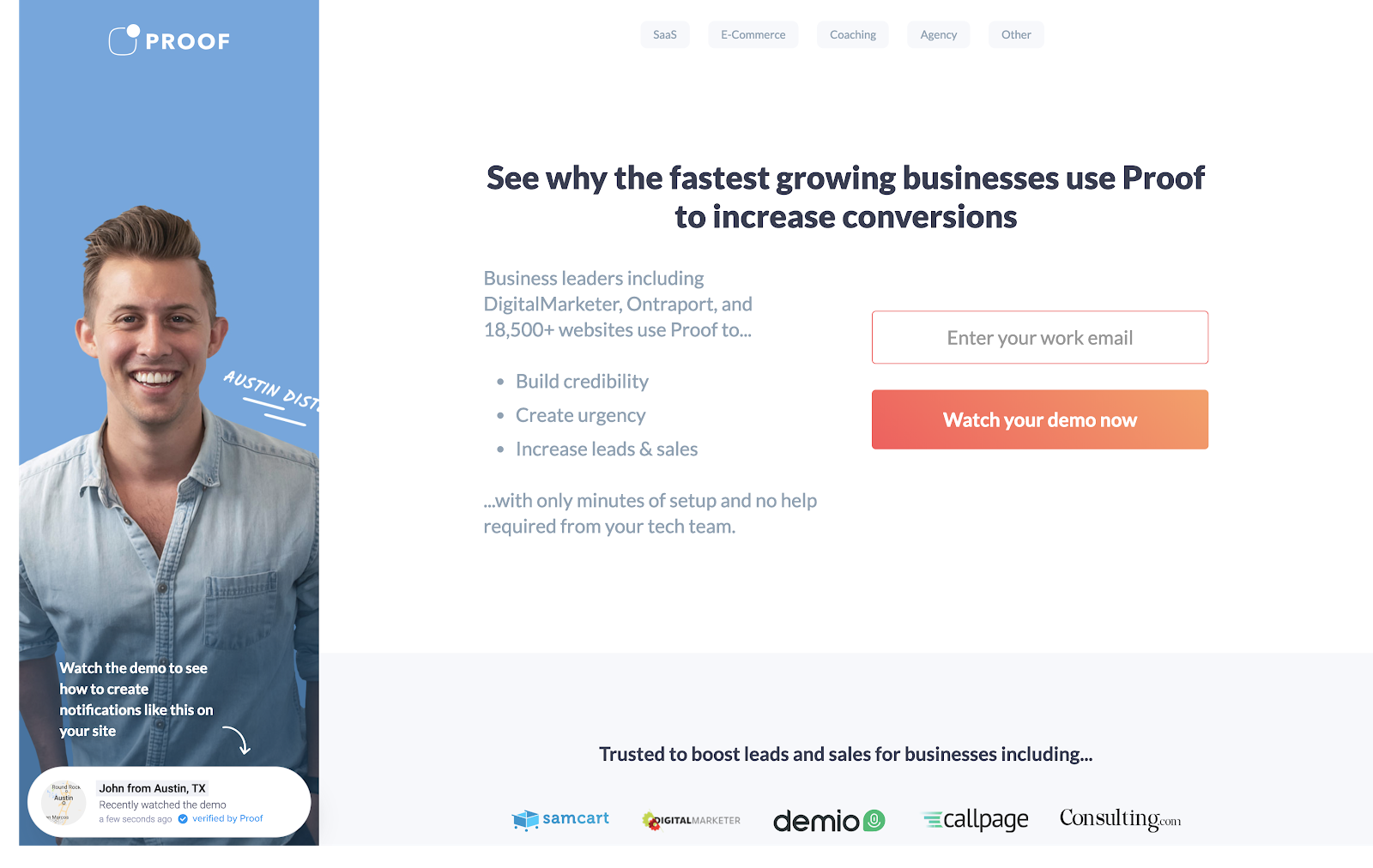
The software takes data you’re already collecting on the backend of your site and displays it on the front-end to convince a consumer to take an action quickly.
Recent customer activity (like John from Austin, Texas recently watched the demo or 85 people are viewing this page) take less than five minutes to set up and deploy on your site and boost conversions on average 10-15%.
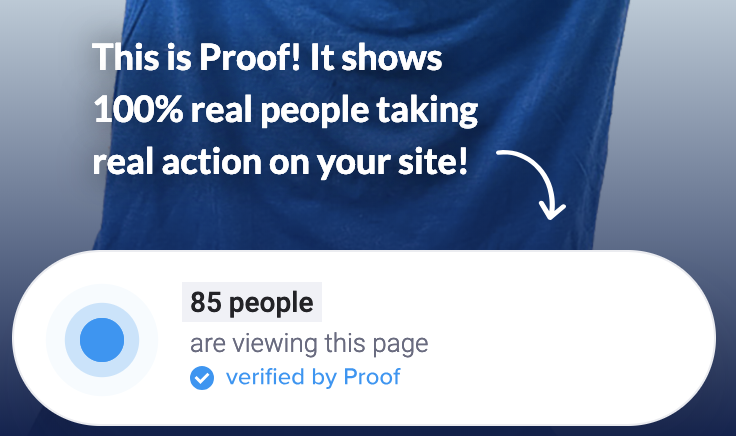
3. Social Proof Must Align with GDPR
2016’s passing of and 2018’s implementation of EU’s General Data Protection Regulation (GDPR) changed the data protection and privacy laws for websites that EU visitors frequent.
Since EU citizens navigate sites across the web, compliance with the regulation was not isolated to Europe — it touched the entire web.
Social proof is still as effective as it was before GDPR, but in 2019, marketers have to acknowledge the changes GDPR brought to online marketing and be careful that their efforts don’t cross the line.
When choosing candidates for case studies, testimonials, reviews, and endorsements — make sure that you have permission to share a customer’s info on your site.
While technically this would only apply to companies and customers from the EU, it’s
likely that some portion of your customer base will be from the EU, so it’s better to be safe than sorry.
Visitors expect you to be transparent about your use of their data — and they are looking for authentic brands that they can trust.
Plus, being GDPR compliant is important from a legal perspective.
If you’re caught in violation of the regulation, you can be fined heavily (the maximum fine is 4% of global annual revenue). No brand is immune — Google, for instance, was recently slapped with a $57 million fine for violations by a French data protection watchdog.
That type of fine could seriously impact your businesses’ bottom line and the level of trust people have in you. It’s always better to work with a GDPR-compliant provider of social proof.
Social Proof Is Part of A More Human Internet
The success of social proof online over the past years has proved that the concept hits something very real.
There are tons of ways to make money online, but by catering to the basic underwiring of human beings — with authenticity, social participation, and transparency — you’ll likely sell more and have customers that trust your site more in the long-run.
Social proof has made the online experience more seamless. It’s provided many avenues to successfully interact with customers in new ways and it’s only part of a wider trend we’re starting to see online.
Personalization, better segmentation, and more unique online experiences are in store for the future. We’re starting to see more companies to start to grasp these concepts throughout their marketing, and we expect the trends to accompany social proof in the year to come.


Order Your Copy of Marcus Sheridan's New Book — Endless Customers!

